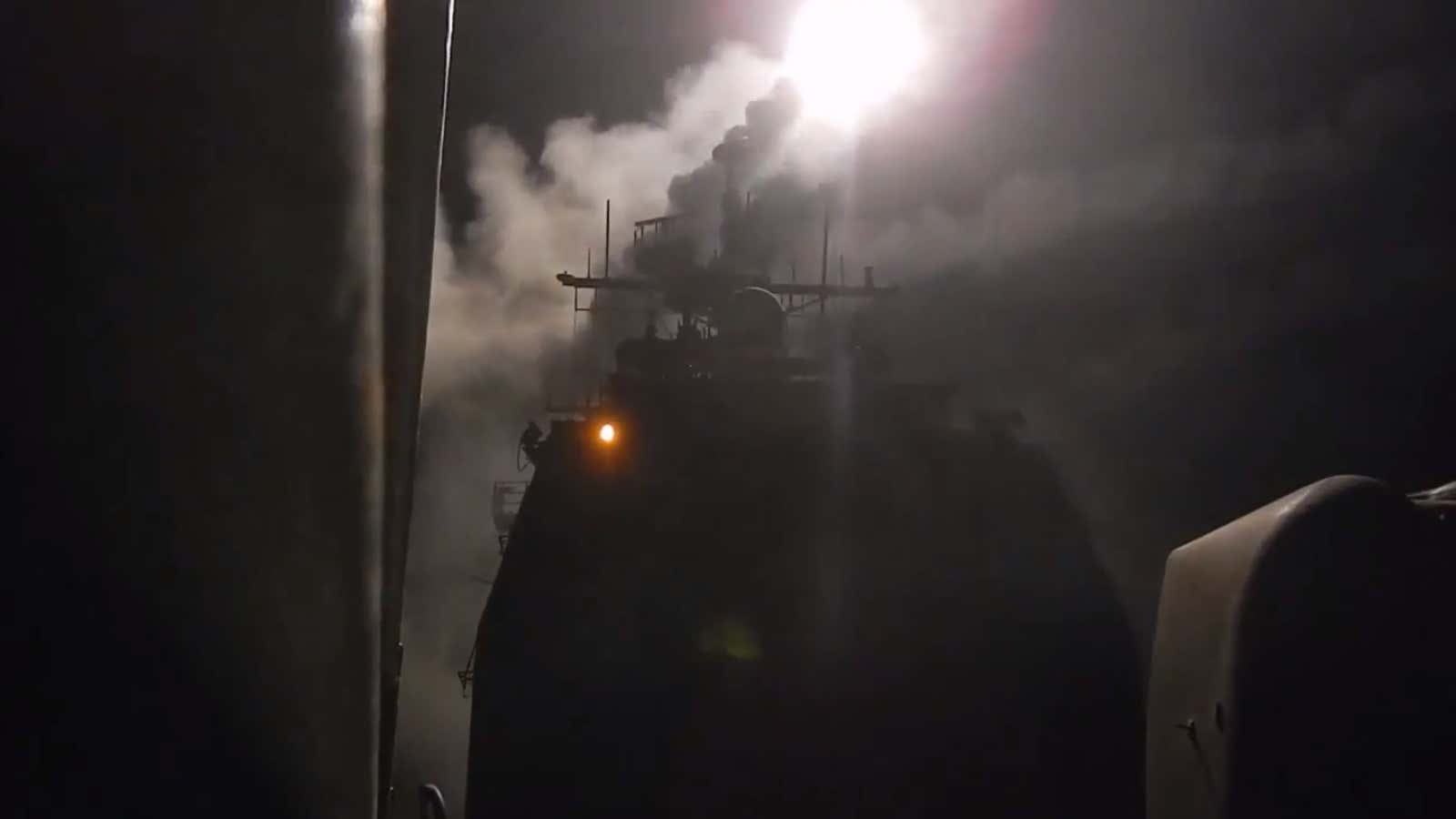There are only sketchy reports of the targets that the US and its Arab allies struck overnight in Syria. But if they want to do meaningful harm to the terrorist group known as the Islamic State (also, ISIL or ISIS), they should consider taking aim at the oil and refining installations through which the group funds itself.
In a rising drumbeat since ISIL surged out of Syria three months ago and seized a third of Iraq, Western political leaders and experts have agonized over the group’s captured oil income. Though the details are thin, ISIL earns anywhere from $1 million to $3 million a day from 10 fields under its control in Syria and Iraq, according to a Sept. 12 report by the risk-management firm Maplecroft and other widely circulated estimates.
But it has been difficult to interdict the oil: it is moved on tankers and makeshift pipelines along longstanding, informal smuggling routes (this is one of the best accounts out there [paywall]). The two main routes go into southern Turkey and Iraqi Kurdistan. Both Turkey and Kurdistan are ambivalent about stopping the trade because they themselves benefit from the cheap oil, which ISIL sells for as little as $25 a barrel.
But the few, largely anecdotal and often conjectural descriptions of how the business works suggest it is almost pointless to attempt to weaken ISIL by interdiction along the smuggling route. According to accounts from reporters in Iraq and southern Turkey, ISIL has already been paid by the time the oil reaches these smuggling points.
Some analysts believe that targeting the smugglers themselves would persuade them to stop working with ISIL. But if that was an effective tool against smuggling, international drug and arms trafficking would have closed down long ago.
Another pain point would be ISIL’s income. Almost every report of the business says the trade is done entirely in cash. For anyone who has seen $1 million in cash, that seems a dubious assumption, the more so if you are talking three times that sum, every day, for almost three months now. Certainly a lot of the business is in cash. But it is at least plausible—and perhaps likely—that ISIL uses some form of banking, perhaps starting with the hawala system and leading to sympathetic patrons. If so, these financial lines can be squeezed, perhaps cut off.
But perhaps the most effective approach of all would be to attack the installations at the oilfields. There are six Syrian and four Iraqi fields under ISIL control. Bessma Momani of the Center for International Governance tells Quartz that one thing stopping a bombing strategy is the potential environmental fallout—memories remain fresh of the smoke that blackened the skies over Kuwait when Saddam Hussain’s retreating troops set its oilfields aflame in 1991.
Anthony Cordesman of the Center on Strategic and International Studies wrote today that the air strikes are necessary to show that the US is a serious force and has strong regional allies. But as for attacking oilfields, he tells Quartz he worries about the reliability of the intelligence about the oil income. “One thing you don’t want to do is get involved in bombing on the basis of qualitative bullshit.” Critics such as Russia will probably also vilify the notion of destroying a sovereign nation’s resource base.
Given that the US-led assault has no forces on the ground, the environmental concern is real–this time, Red Adair’s men cannot swoop in and contain the fires, as they did in Kuwait. Yet the tactic of targeting oil is not new. Though there are few contemporary examples, mostly because guerrilla forces rarely take charge of working oil fields (ISIL itself set fire [paywall] to oil storage tanks and buildings at Iraq’s Ain Zalah field as it retreated from a Peshmerga assault last month), oil fields, refineries and fuel convoys were prime targets bombed by both sides in the two world wars, for instance. Some historians believe that a lack of fuel by Germany, whose convoys and fields were continually bombed, was a key determinant of its defeat in World War II.
This is the point—if the fight against ISIL is truly a crucial, generational war, as president Barack Obama and other Western leaders assert, you don’t hesitate to hit your enemy where it hurts hardest.




